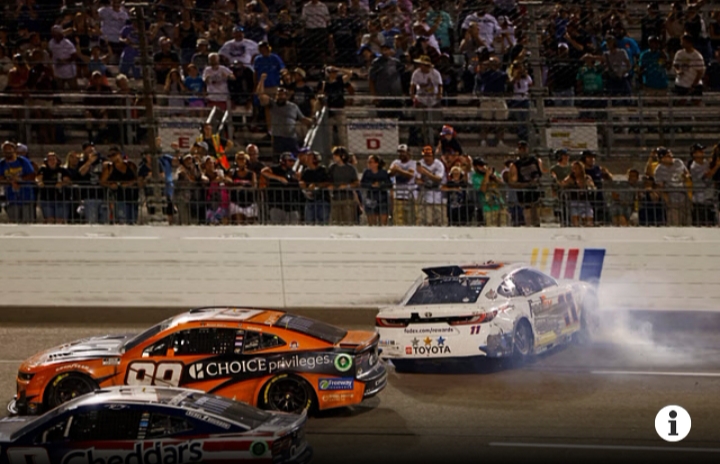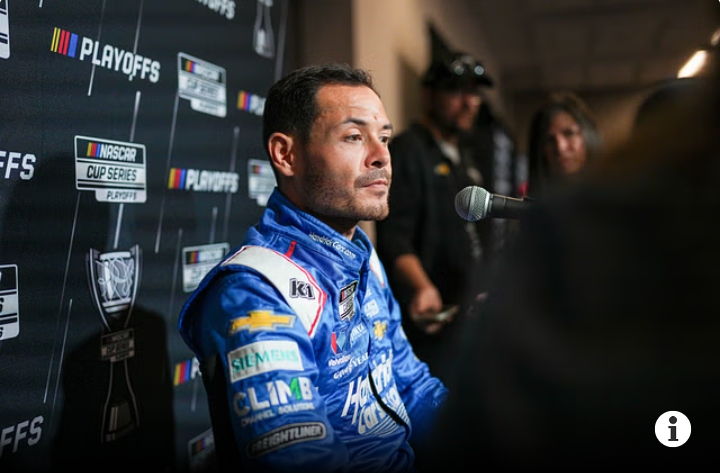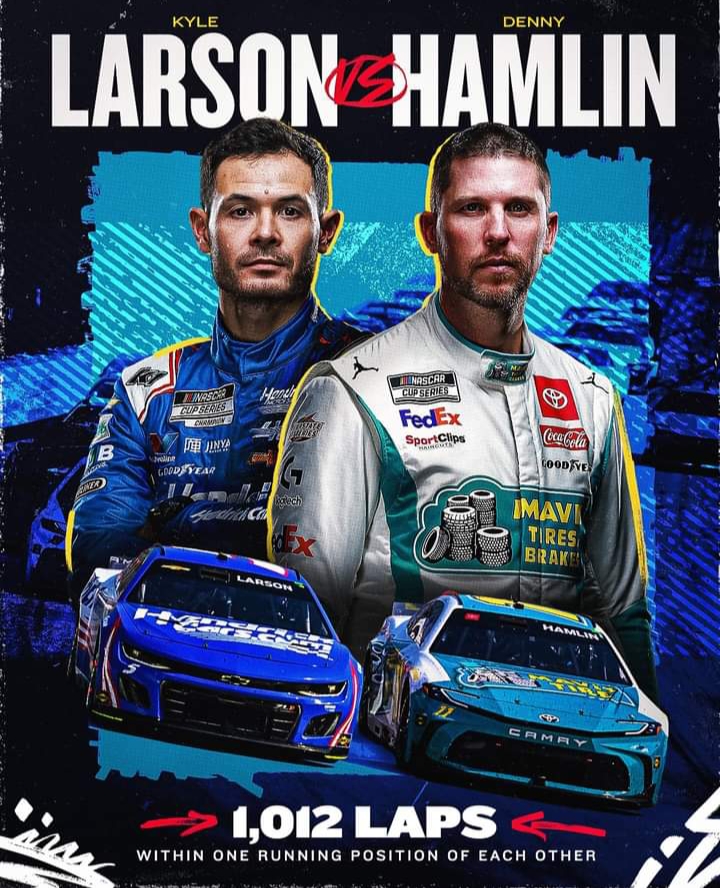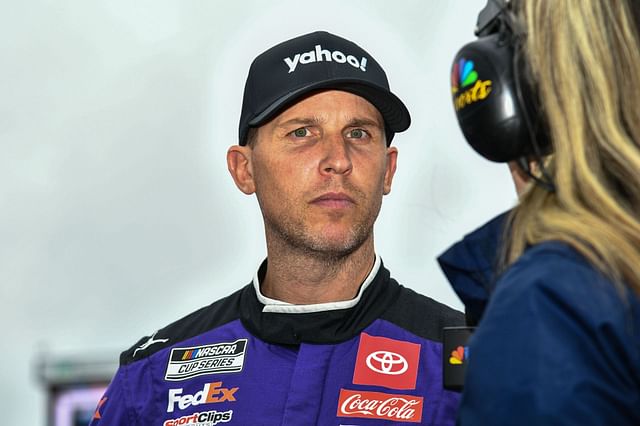Denny Hamlin has recently weighed in on the heated debate surrounding Austin Dillon’s conduct during the Richmond race. Dillon celebrated his first victory since August 2022, marking a significant comeback in his first race after NASCAR’s two-week hiatus, which catapulted him from 32nd place into the postseason in the Cup Series standings.
However, Hamlin has accused Dillon of deliberately causing a crash during the race at Richmond International Raceway. On the final lap, Dillon made contact with Joey Logano in Turn 3, sending him spinning out of the lead. Hamlin’s No. 11 car was also caught up in the chaos.
In the latest episode of his Dirty Mo Media podcast, “Actions Detrimental,” Hamlin referenced SMT (SportMotive Technologies) data to support his claim that Dillon’s maneuver was intentional. The 43-year-old provided an in-depth analysis of the race’s closing laps, insisting that Dillon’s actions were premeditated rather than a mere racing incident.
“The three cars made a sharp 70° turn to the left, which is quite a bit more than the typical cornering angle of around 30 to 35°. Essentially, it was double the usual amount needed for a corner,” he explained. (11:25)
Hamlin noted that Dillon’s exit from the turn was an extreme 70-degree maneuver, significantly sharper than a standard corner exit, leading to a sudden swerve of his vehicle.
“To put it simply, if we consider a standard 35° steering wheel angle, he essentially doubled that after passing the 22. The natural instinct is to steer from the bottom of the track; you don’t just stick to the yellow line on the straight. As you exit the corner, you typically drive up toward the wall. I was executing a normal corner exit, and you can usually observe these dynamics from the cars trailing behind,” he continued. (11:39)
Hamlin also reflected on the moments leading up to the crash. He acknowledged that he sensed potential trouble but didn’t anticipate the race would conclude in such a dramatic fashion. He believed Joey Logano had a solid lead and was on track to secure the victory.
Denny Hamlin has voiced significant concerns regarding NASCAR’s approach to utilizing available technology for evaluating incidents that occur on the racetrack. He emphasized that, based on straightforward reasoning, it is evident that driver Austin Dillon intentionally spun out Joey Logano, rather than it being a mere accident that can happen in the heat of competition. Hamlin stated, “That was not just a racing incident. He didn’t approach the corner in a typical way; he drove in until he made contact.” This observation suggests that Hamlin believes Dillon’s actions were premeditated and not just a result of the unpredictable nature of racing.
Hamlin further criticized NASCAR’s enforcement of rules, drawing a comparison to the Cars Tour, a series that he believes effectively applies its regulations. He questioned, “If they can enforce rules in the Cars Tour, why can’t NASCAR?” This rhetorical question highlights his frustration with what he perceives as a lack of accountability and consistency in NASCAR’s officiating. He pointed out that NASCAR has access to advanced technology that could aid in making more informed decisions, yet they seem to fall short in applying critical thinking to assess incidents on the track. “They lack the technology we possess. You don’t even need advanced tools to think critically. That’s what frustrates me,” Hamlin expressed, indicating that he feels the governing body is not fully leveraging the resources at its disposal.
In addition to his concerns about incident assessment, Hamlin also addressed the criteria for playoff qualification in NASCAR. He argued that simply winning a race should not be the only factor determining a driver’s eligibility for the playoffs. While he acknowledged the challenges of altering rules mid-season, he proposed a potential solution: NASCAR could consider nullifying a win if it was determined that the victory was achieved through unfair racing tactics. This suggestion reflects Hamlin’s desire for a more equitable and just system within the sport, where the integrity of racing is upheld and drivers are held accountable for their actions on the track.




